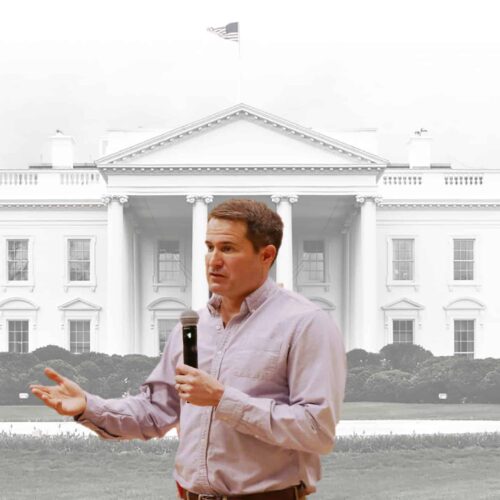Introduction
Update, Aug. 23, 2019: Seth Moulton has ended his presidential bid.
U.S. Rep. Seth Moulton, known as an outspoken critic of both President Donald Trump and Democratic party leadership, is officially jumping into the Democratic race for president.
“We need to restore our moral authority in everything we do. Whether it’s appointing a Cabinet member, negotiating a treaty or signing an executive order, I will always uphold America’s values,” Moulton said in a campaign launch video.
Moulton, 40, a Harvard graduate who served four tours in Iraq with the U.S. Marine Corps, represents a Massachusetts district stretching from Cape Ann to the Merrimack Valley.
He’ll attempt to make the tricky jump from a seat in the U.S. House to the White House without holding another political office in between — something not done since President James Garfield accomplished the feat in 1880.
Here’s more on Moulton’s political and financial history:
— Moulton first won office in 2014 after beating a longtime incumbent, then-U.S. Rep. John Tierney, in a race that gave him a reputation as a party outsider. Moulton cemented that perception when he led an effort to keep House Speaker Nancy Pelosi from winning her leadership election earlier this year — ultimately backing her as part of a deal in which she agreed to limit her speakership to a maximum of four years.
— Moulton has worked to enlist and support political candidates with military backgrounds. Leading up to the 2018 elections, his leadership political action committee, Serve America PAC, boosted candidates such as U.S. Rep. Jason Crow, D-Colo., and Democratic House candidate Amy McGrath in Kentucky, among others. Serve America PAC spent about $1.8 million during the 2018 election cycle.
— In 2017, Moulton married Liz Boardman, a partner at executive search firm Korn Ferry, in Marblehead, Mass. Guests included U.S. Rep. Eric Swalwell, D-Calif., who is also running for president in 2020. Ethics officials issued a gift waiver, allowing the couple to accept wedding gifts without publicly disclosing them, a common practice; the couple reportedly had a private registry at Pottery Barn. Moulton and Boardman welcomed their first child, daughter Emmy, last October.
— Moulton will have to prove he can attract support from small-dollar donors: About 10 percent of the $2.2 million his House campaign committee raised during the 2017-2018 election cycle came from contributors giving $200 and under.
— About $1 out of every $3 contributed to Moulton’s House campaign in 2017 and 2018 came from his home state of Massachusetts, according to an analysis by the Federal Election Commission.
— An early supporter: Retired Gen. Stanley McChrystal, who gave Moulton his endorsement in his crucial 2014 race and also contributed $2,700 to his primary campaign in 2018.

— In 2013, Moulton helped start a company aimed at ending the obesity epidemic. But after he left, the start-up, Eastern Healthcare Partners, foundered and eventually shut down, and the Boston Globe reported it stiffed Johns Hopkins University on the costs of a clinical trial and failed to pay taxes to Delaware, where it was incorporated.
— In 2018, Moulton joined with a bipartisan group of lawmakers to call on Trump to nominate commissioners to fill vacancies on the Federal Election Commission. The six-commissioner agency continues to operate with four commissioners — the minimum number needed to conduct high-level business.
— Moulton-affiliated political committees benefited from more than $675,000 in political action committee money during 2017 and 2018, according to the Center for Responsive Politics, including more than half a million dollars from business-related PACs. Among them are the PACs of Boeing, General Electric, Goldman Sachs and defense contractors Raytheon and Northrop Grumman. Many Democratic presidential contenders have this year vowed not to accept corporate PAC money.
Sources: The Boston Globe, BuzzFeed News, The Center for Responsive Politics, Wicked Local News, Federal Election Commission filings, CNBC, personal financial disclosure records for members of Congress via the U.S. House, Issue One.
Read more in Money and Democracy
Money and Democracy
What second-quarter fundraising can tell us about 2020
Presidential campaign finance disclosures help gauge candidate viability and voter enthusiasm.
Money and Democracy
Controversial J&J drug pushed by Trump is nixed from VA’s pharmacy list
Experts question Spravato’s safety and effectiveness.


Join the conversation
Show Comments